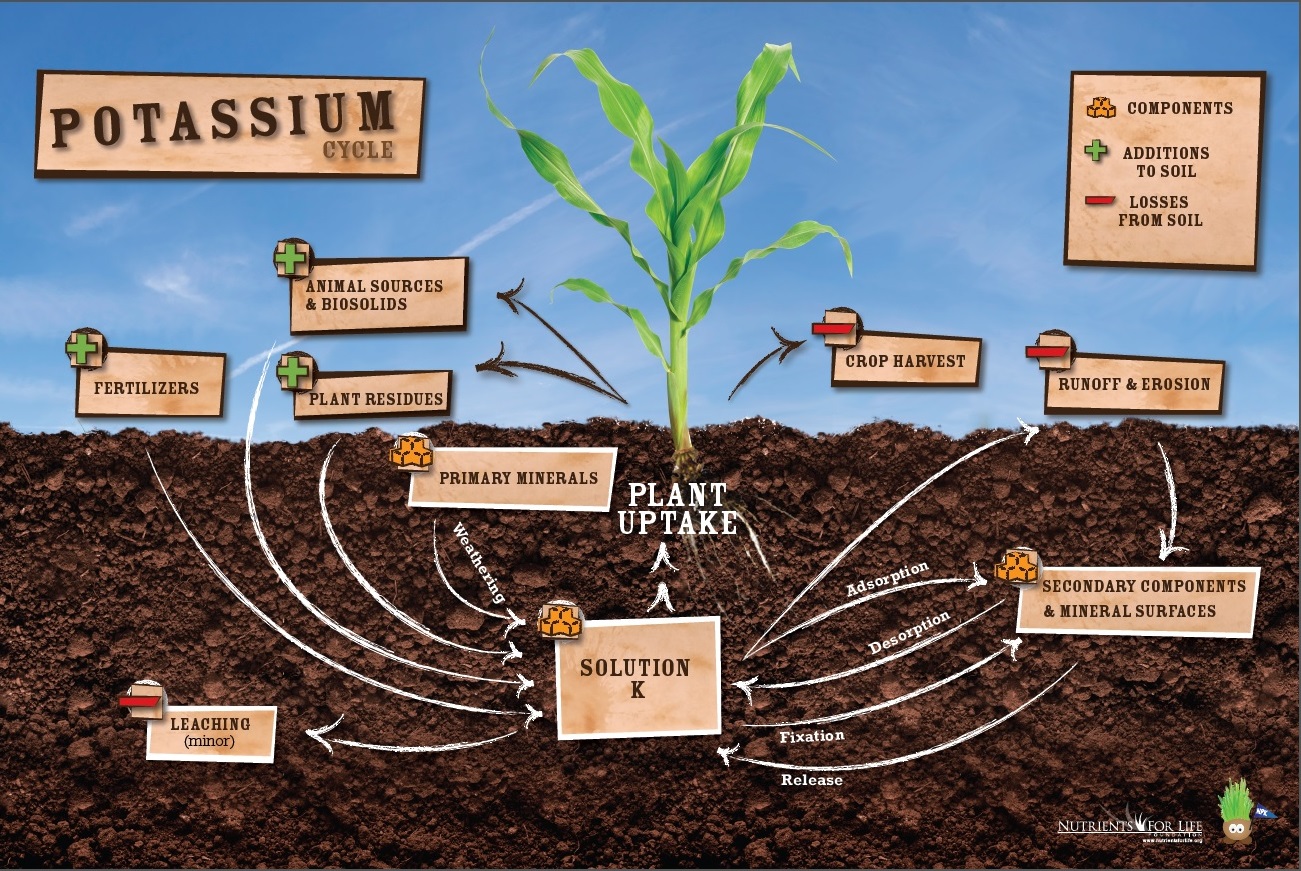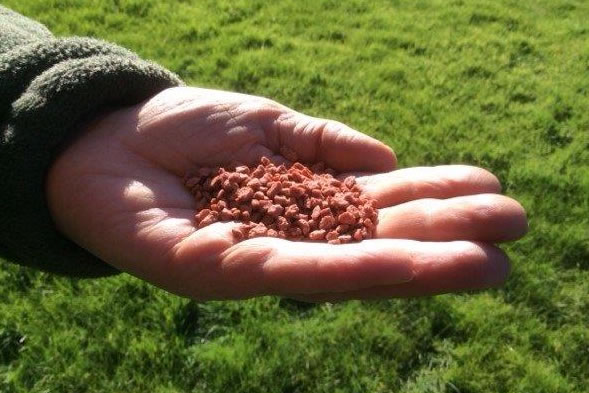Nourishing Your Plants from the Roots Up
Potash, an essential nutrient for plant growth, plays a vital role in promoting healthy root development, water balance, and overall plant health. It is the third most important nutrient for plants, after nitrogen and phosphorus, and is responsible for facilitating the uptake of water and nutrients. When plants receive adequate potash, they are better equipped to absorb these essential resources, resulting in stronger stems, healthier leaves, and more robust roots. In essence, potash provides the necessary foundation for plants to thrive, making it an indispensable component of any plant care routine. So, what does potash do for plants? By understanding the importance of potash, gardeners and farmers can take steps to ensure their plants receive the necessary nutrients for optimal growth and development.
How to Boost Plant Immunity with Potash
Potash plays a crucial role in helping plants fight off diseases and pests, making it an essential component of any plant care routine. By providing plants with adequate potash, gardeners and farmers can promote plant immunity, reducing the risk of disease and pest-related damage. But how does potash achieve this? Essentially, potash helps to strengthen plant cell walls, making it more difficult for pathogens to penetrate and cause harm. Additionally, potash facilitates the production of antioxidants, which help to neutralize free radicals and prevent oxidative stress. So, what does potash do for plants in terms of immunity? By understanding the role of potash in plant immunity, growers can take steps to ensure their plants are well-equipped to defend against disease and pests. To apply potash and promote plant immunity, gardeners can use potash-rich fertilizers, such as potassium sulfate or potassium chloride, and follow best practices for soil preparation and irrigation.
The Role of Potash in Photosynthesis and Energy Production
Potash plays a vital role in facilitating photosynthesis, energy production, and nutrient uptake in plants. By providing plants with adequate potash, gardeners and farmers can promote healthy growth and development. During photosynthesis, potash helps to regulate the opening and closing of stomata, allowing plants to absorb carbon dioxide and release oxygen. Additionally, potash is involved in the production of ATP, the energy currency of plants, which is essential for growth and development. So, what does potash do for plants in terms of energy production? By understanding the role of potash in photosynthesis and energy production, growers can take steps to optimize plant growth and productivity. For example, applying potash-rich fertilizers can help to increase plant energy reserves, leading to healthier and more productive plants. Furthermore, potash can help to improve nutrient uptake, allowing plants to absorb essential micronutrients and macronutrients from the soil. By promoting healthy photosynthesis and energy production, potash is an essential component of any plant care routine.
Potash and Soil Health: A Symbiotic Relationship
The relationship between potash and soil health is a vital one, with potash playing a crucial role in maintaining soil structure, fertility, and microbial activity. By understanding the interplay between potash and soil health, gardeners and farmers can take steps to create a thriving soil ecosystem that supports healthy plant growth. Potash helps to improve soil structure by increasing the water-holding capacity of soil, reducing soil erosion, and promoting healthy root development. Additionally, potash is involved in the cycling of nutrients, making them more available to plants. So, what does potash do for plants in terms of soil health? By providing plants with adequate potash, growers can promote a balanced soil ecosystem, teeming with beneficial microorganisms that support plant growth and development. Furthermore, potash can help to reduce soil salinity, a common problem in areas with high salt levels, by promoting the growth of salt-tolerant microorganisms. By maintaining healthy soil, potash helps to create a resilient and productive growing environment, supporting the growth of strong and healthy plants.
Optimizing Crop Yields with Potash Fertilizers
When it comes to optimizing crop yields, potash fertilizers play a critical role. By providing plants with adequate potash, growers can enhance fruiting, flowering, and overall plant productivity. So, what does potash do for plants in terms of crop yields? By promoting healthy plant growth and development, potash helps to increase crop yields, improve fruit quality, and reduce the risk of crop failure. Potash fertilizers can be applied in a variety of ways, including through soil application, foliar sprays, and irrigation systems. By choosing the right potash fertilizer for their specific crop and soil type, growers can maximize the benefits of potash and achieve optimal crop yields. Additionally, potash can help to improve the shelf life of crops, reducing waste and increasing profitability for farmers. By understanding the role of potash in crop yields, growers can take steps to optimize their fertilizer applications and achieve the best possible results. With the right potash fertilizer, growers can unlock the full potential of their crops and achieve exceptional yields.
Potash Deficiency: Identifying and Addressing the Signs
Potash deficiency can have a significant impact on plant growth and health, leading to a range of symptoms that can be detrimental to crop yields and quality. So, what does potash do for plants in terms of preventing deficiency? By understanding the common signs of potash deficiency, growers can take steps to address these issues and promote healthy plant growth. Yellowing leaves, weak stems, and poor growth are all common indicators of potash deficiency, and can be accompanied by other symptoms such as reduced fruiting and flowering. To address potash deficiency, growers can apply potash fertilizers, adjust soil pH levels, and improve soil structure to promote healthy root development. Additionally, incorporating organic matter such as compost and manure can help to increase potash levels in the soil. By identifying and addressing potash deficiency, growers can promote healthy plant growth, increase crop yields, and reduce the risk of disease and pest problems. By maintaining optimal potash levels, growers can unlock the full potential of their crops and achieve exceptional results.
Potash in Organic Gardening: A Natural Approach to Plant Care
In organic gardening, potash plays a vital role in promoting healthy plant growth and development. What does potash do for plants in organic gardening? By using natural sources of potash, such as wood ash and compost, gardeners can create a nutrient-rich soil environment that supports optimal plant growth. Wood ash, for example, is a natural source of potash that can be added to soil to improve its structure and fertility. Compost, on the other hand, is a rich source of potash that can help to promote healthy microbial activity in the soil. By incorporating these natural sources of potash into their gardening routine, organic gardeners can create a balanced and sustainable soil ecosystem that supports healthy plant growth. Additionally, using potash-rich organic matter can help to reduce the need for synthetic fertilizers, promoting a more natural and environmentally-friendly approach to plant care. By embracing the power of potash in organic gardening, gardeners can create a thriving and resilient garden ecosystem that benefits both plants and the environment.
Maximizing Plant Growth with Balanced Potash Levels
Maintaining balanced potash levels is crucial for promoting healthy plant growth and development. What does potash do for plants in terms of maximizing growth? By ensuring optimal potash levels, plants can thrive and reach their full potential. To achieve balanced potash levels, growers can implement a range of strategies, including soil testing, potash fertilization, and crop rotation. Soil testing, for example, can help identify potash deficiencies and guide fertilization decisions. Potash fertilizers, on the other hand, can provide a quick and effective way to boost potash levels in the soil. Crop rotation, meanwhile, can help to promote soil health and reduce the risk of potash depletion. By adopting these strategies, growers can create a nutrient-rich soil environment that supports optimal plant growth and development. Additionally, maintaining balanced potash levels can help to reduce the risk of disease and pest problems, promote healthy root development, and enhance overall plant productivity. By prioritizing potash management, growers can unlock the full potential of their crops and achieve exceptional results.









